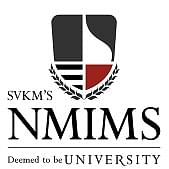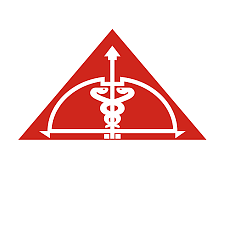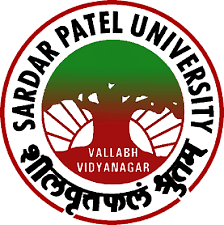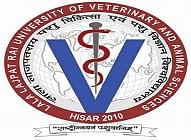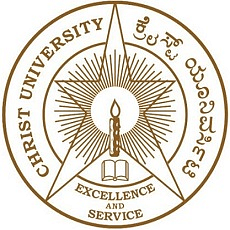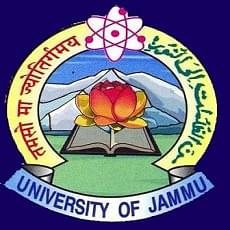Introduction
about Bachelors in Journalism and Media
A Bachelor's degree in Journalism and Media from topuniversity in India is an undergraduate
academic program designed to provide students with the knowledge, skills, and
practical experience necessary for a career in the field of journalism, mass
communication, and media industries. This program offers a comprehensive
understanding of the principles, practices, and technologies shaping modern
journalism and media landscape.
Students pursuing a Bachelor's in Journalism and
Media typically study a diverse range of subjects related to journalism,
communication theory, media production, and digital media. The curriculum is
designed to equip students with the critical thinking, research, writing,
storytelling, and multimedia skills needed to effectively gather, analyze, and
disseminate news and information across various platforms.
Here are some key components of a Bachelor's in
Journalism and Media program:
·
Core Courses: Students
take foundational courses covering topics such as media ethics, journalism
principles, news writing and reporting, media law and regulation, and
communication theory.
·
Multimedia Skills:
The program emphasizes the development of multimedia skills, including digital
storytelling, video production, audio production, photography, graphic design,
and social media management.
·
Specialized Tracks:
Many programs offer specialized tracks or concentrations that allow students to
focus on specific areas of interest within journalism and media, such as
broadcast journalism, digital journalism, sports journalism, investigative
journalism, public relations, advertising, or media studies.
·
Practical Experience:
Students gain hands-on experience through internships, fieldwork, and practicum
courses at media organizations, news outlets, broadcasting stations,
advertising agencies, or public relations firms. These opportunities provide
real-world experience and networking opportunities in the industry.
·
Critical Analysis:
The program emphasizes critical analysis of media content, media effects,
audience behavior, and the role of journalism and media in shaping public
opinion, democracy, and social change.
·
Technology Integration:
Students learn to use state-of-the-art technologies and digital tools for media
production, content creation, data journalism, multimedia storytelling, and
audience engagement.
·
Ethical and Legal Considerations:
The curriculum addresses ethical considerations, professional standards, and
legal issues relevant to journalism and media practice, including accuracy,
fairness, privacy, defamation, copyright, and intellectual property rights.
·
Research and Writing Skills:
Students develop strong research, writing, editing, and fact-checking skills
essential for producing high-quality journalistic content across various
platforms, including print, broadcast, online, and social media.
Upon completion of a Bachelor's in Journalism and
Media degree, graduates are prepared for a wide range of career opportunities
in journalism, broadcasting, digital media, public relations, advertising,
corporate communication, and related fields. They may work as reporters,
correspondents, editors, producers, media analysts, social media managers,
communication specialists, or content creators for newspapers, magazines,
television networks, radio stations, online news outlets, digital media
companies, government agencies, nonprofits, and corporate organizations.
What is
eligibility to apply for Bachelors in Journalism and Media ?
·
The eligibility criteria to apply
for top affordable Bachelor's degree program in Journalism and Media can vary
depending on the institution offering the course and the country in which it is
pursued. However, here are some common eligibility requirements:
·
Educational Qualifications:
·
Completion of secondary education
(high school) or its equivalent is typically required.
·
Some institutions may have
specific academic requirements, such as a minimum GPA (grade point average) or
completion of certain subjects during high school.
·
Language Proficiency:
·
Proficiency in the language of
instruction may be required, especially if the program is taught in a language
other than the applicant's native language.
·
Some institutions may require
applicants to submit standardized test scores, such as the TOEFL (Test of
English as a Foreign Language) or IELTS (International English Language Testing
System), to demonstrate English language proficiency for non-native speakers.
·
Entrance Exams:
·
Some institutions may require
applicants to take entrance exams as part of the admissions process. These
exams may assess language skills, writing abilities, general knowledge, or
aptitude for journalism and media studies.
·
Portfolio or Writing Samples:
·
Applicants may be required to
submit a portfolio of their work or writing samples demonstrating their
interest and skills in journalism, media production, or related fields. This
could include articles, essays, blog posts, multimedia projects, or other
creative works.
·
Personal Statement or Essay:
·
Applicants may be required to
submit a personal statement or essay outlining their interest in studying
journalism and media, career goals, relevant experiences or achievements, and
reasons for choosing the specific program or institution.
·
Letters of Recommendation:
·
Some institutions may require
applicants to submit letters of recommendation from teachers, counselors, or
other individuals who can attest to their academic abilities, character, and
suitability for studying journalism and media.
·
Interviews:
·
In some cases, applicants may be
required to participate in an interview as part of the admissions process. This
interview may assess the applicant's motivation, communication skills, and
readiness for studying journalism and media.
·
Background Checks:
·
Applicants may be required to
undergo background checks, including criminal background checks and character
assessments, particularly if they will be working in sensitive areas such as
journalism or media production.
It's important to note that eligibility
requirements may vary from one institution to another and may also be
influenced by local laws and regulations. Prospective students should carefully
review the specific admission criteria provided by the institution to which
they are applying and ensure that they meet all requirements before submitting
their application.
What is
admission process to apply for Bachelors in Journalism and Media ?
The admission process for applying to a Bachelor'sprogram in Journalism and Media can vary depending on the institution offering
the course and the country in which it is pursued. However, here's a general
overview of the typical admission process:
·
Research Programs:
Start by researching universities or colleges that offer Bachelor's programs in
Journalism and Media. Look for institutions known for their strong journalism
schools and programs that align with your academic interests, career goals, and
location preferences.
·
Check Admission Requirements:
Review the admission requirements for each program you're interested in. These
requirements may vary depending on the institution but commonly include:
·
Educational qualifications:
Completion of secondary education (high school) or its equivalent.
·
Language proficiency: Proficiency
in the language of instruction, usually English.
·
Entrance exams: Some institutions
may require applicants to take entrance exams or tests.
·
Portfolio or writing samples:
Applicants may be required to submit a portfolio of their work or writing
samples.
·
Personal statement or essay: A
statement outlining their interest in studying journalism and media, career
goals, and relevant experiences or achievements.
·
Letters of recommendation: Some
institutions may require applicants to submit letters of recommendation.
·
Interviews: Applicants may be
required to participate in an interview as part of the admissions process.
·
Background checks: Some institutions
may require applicants to undergo background checks.
·
Prepare Application Materials:
Gather all necessary documents for your application, such as academic
transcripts, standardized test scores, portfolio or writing samples, personal
statement or essay, letters of recommendation, and any other required
materials.
·
Complete Application:
Fill out the application form provided by the institution. Some institutions
may allow you to apply online through their website, while others may require
you to submit a paper application by mail or in person. Ensure that you provide
accurate and complete information on the application form.
·
Pay Application Fee:
Pay any required application fees as instructed by the institution. Be sure to
check the application fee amount and payment methods accepted by the
institution.
·
Submit Application:
Submit your completed application along with all required documents by the
specified deadline. Follow the institution's instructions for submitting the
application, which may include uploading documents online, sending them by
mail, or delivering them in person.
·
Follow Up: After
submitting your application, follow up with the institution to ensure that all
required documents have been received and your application is complete. You may
also need to schedule any required interviews or entrance exams as part of the
admissions process.
·
Wait for Admission Decision:
Once you've submitted your application, wait for the institution to review your
application and make an admissions decision. This process may take several
weeks or months, depending on the institution's timeline and the volume of
applications they receive.
·
Acceptance and Enrollment:
If you receive an offer of admission, carefully review the offer letter,
including any deadlines for accepting the offer and submitting enrollment
deposits. Once you've accepted the offer, follow the institution's instructions
for enrolling in classes and completing any additional requirements for
incoming students.
·
It's important to stay organized throughout
the application process and carefully read all instructions provided by the
institution to which you're applying. If you have any questions or need
clarification on any aspect of the application process, don't hesitate to reach
out to the institution's admissions office for assistance.
What is
syllabus of Bachelors in Journalism and Media ?
The syllabus for a Bachelor's degree program inJournalism and Media can vary depending on the institution offering the course
and the specific focus areas within the field. However, here's a general
overview of the typical subjects and topics covered in a Bachelor's in
Journalism and Media syllabus:
·
Foundation Courses:
·
Introduction to Journalism:
History, principles, and practices of journalism.
·
Media and Society: Study of the
role of media in society, media ethics, and media literacy.
·
Introduction to Mass
Communication: Overview of mass communication theories, models, and processes.
·
Core Journalism Courses:
·
News Writing and Reporting:
Principles of news writing, journalistic style, and reporting techniques.
·
Multimedia Journalism:
Introduction to multimedia storytelling, including writing for print,
broadcast, online, and social media platforms.
·
Investigative Journalism:
Techniques for researching, investigating, and reporting in-depth stories.
·
Feature Writing: Writing feature
articles, profiles, and human-interest stories.
·
Editing and Copyediting:
Principles of editing, copyediting, and headline writing.
·
Media Production Courses:
·
Digital Media Production: Introduction
to digital media tools and technologies for content creation, including audio,
video, and multimedia production.
·
Photojournalism: Techniques for
capturing and editing news and documentary photographs.
·
Broadcast Journalism: Introduction
to broadcast news production, including radio and television journalism.
·
Documentary Production: Techniques
for planning, shooting, and editing documentary films and videos.
·
Media Law and Ethics:
·
Media Law: Study of legal issues
related to freedom of speech, libel, privacy, copyright, and media regulation.
·
Media Ethics: Ethical
considerations in journalism, including accuracy, fairness, transparency, and
conflicts of interest.
·
Specialized Journalism Courses:
·
Political Journalism: Coverage of
politics, government, and public affairs.
·
Business Journalism: Reporting on
business, finance, and economics.
·
Sports Journalism: Coverage of
sports events, athletes, and sports culture.
·
Entertainment Journalism:
Reporting on the entertainment industry, celebrities, and popular culture.
·
Environmental Journalism: Coverage
of environmental issues, sustainability, and climate change.
·
Research and Analysis:
·
Media Research Methods:
Introduction to research methodologies used in media studies, including
surveys, interviews, content analysis, and focus groups.
·
Media Criticism: Critical analysis
of media content, media effects, and media representations.
·
Internship or Practicum:
·
Practical experience working in
journalism and media organizations, newsrooms, or media production companies
under the supervision of experienced professionals. Internships provide
hands-on experience and networking opportunities in the industry.
·
Elective Courses:
·
Depending on the program, students
may have the opportunity to choose elective courses in areas such as public
relations, advertising, media management, digital marketing, or communication
studies.
·
It's important to note that the
syllabus may be updated periodically to reflect changes in the industry and
incorporate new developments in journalism, media technologies, and
communication theory. Students should consult the specific syllabus provided by
their institution for the most accurate and up-to-date information on course
offerings and requirements.
What are
scopes after Bachelors in Journalism and Media course ?
After completing a Bachelor's degree in Journalism
and Media from the best college in India
, graduates have a wide range of career opportunities available to them across
various sectors of the media industry. Here are some common career paths and
scopes for graduates:
·
Journalism and Reporting:
Graduates can work as reporters, correspondents, or journalists for newspapers,
magazines, online news outlets, television networks, radio stations, or wire
services. They research, write, and produce news stories, features, and
investigative reports on local, national, and international issues.
·
Broadcasting and Multimedia Production:
Graduates can pursue careers in broadcast journalism, working as news anchors,
reporters, producers, or editors for television news programs, radio shows, or
online video platforms. They may specialize in multimedia storytelling, video
production, podcasting, or live reporting.
·
Digital Media and Online Content
Creation: Graduates can work in digital media companies,
online news organizations, social media platforms, or content creation
agencies. They may produce digital content, manage social media accounts,
curate news websites, or create multimedia projects for online audiences.
·
Public Relations and Corporate Communication:
Graduates can work in public relations firms, advertising agencies, corporate
communication departments, or nonprofit organizations. They may develop
communication strategies, write press releases, manage media relations, and
create promotional campaigns for clients or organizations.
·
Media Management and Administration:
Graduates can pursue careers in media management, working as editors,
producers, or managers for media organizations, publishing companies, or
broadcasting networks. They may oversee editorial content, manage production
teams, or coordinate distribution channels.
·
Digital Marketing and Social Media
Management: Graduates can work in digital marketing agencies,
e-commerce companies, or brand management firms. They may develop digital
marketing campaigns, manage social media accounts, analyze audience engagement,
and optimize online content for search engines.
·
Freelance Writing and Consulting:
Graduates can work as freelance writers, bloggers, or content creators,
providing written content for publications, websites, or businesses. They may
also offer consulting services in areas such as media strategy, content
marketing, or digital storytelling.
·
Research and Academia:
Graduates interested in academic and research careers can pursue further
education, such as a Master's degree or Ph.D. in journalism, media studies, or
communication. They may work as researchers, professors, lecturers, or academic
administrators in universities, colleges, or research institutions.
·
Nonprofit and Advocacy Organizations:
Graduates can work for nonprofit organizations, advocacy groups, or social
justice organizations. They may engage in advocacy campaigns, public awareness
initiatives, or community outreach efforts using journalism and media tools for
social change.
·
Entrepreneurship and Media Startups:
Graduates can start their own media ventures, such as independent news
websites, podcasts, video channels, or content production studios. They may
innovate new media models, experiment with emerging technologies, or address
niche audiences in the media landscape.





